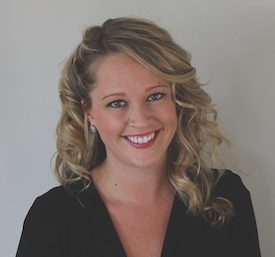After much discussion among industry participants and policy shapers, HUD has released a new mortgagee letter intended to address a long-standing issue with the rights of the non-borrowing spouses of HECM borrowers. Now, more non-borrowing spouses will have the opportunity to remain in their homes upon the passing of their spouse without the threat of foreclosure.
The new guidelines are an expansion of a previous mandate made in January, in which HUD granted lenders the ability to defer foreclosure for non-borrowing spouses who meet certain eligibility requirements for case numbers that were assigned on or after August 4, 2014.
Under the new policy, released June 12 in Mortgagee Letter 2015-15, HUD has expanded these eligibility requirements to include loans with case numbers assigned before August 4, 2014, effectively allowing a larger number of non-borrowing spouses to remain in their homes.
The guidelines dictate that lenders can now assign a loan to HUD upon the death of the last surviving borrower, whereas before, the loan would not have been assignable based solely on the borrower’s death. This “Mortgage Optional Election Assignment,” known as MOE, will allow lenders to prevent the foreclosure of properties occupied by the surviving spouse of a HECM borrower, enabling them to stay in the home. By utilizing MOE, lenders can assign a HECM to HUD despite the loan’s unpaid principal balance.
Alternatively, the guidelines state that lenders can also allow a claim payment following the sale of the property by heirs or by the estate, or they can foreclose according to the terms of the loan and file an insurance claim with FHA.
HUD outlines several conditions that would allow a non-borrowing spouse to remain in their home following the death of the borrower: -The loan must be assigned an FHA case number before August 4, 2014.
-The non-borrowing spouse must: *Be current with all HUD-defined property charges *Maintain the property under the terms and conditions of the HECM and follow HUD’s guidelines for minimum property standards *Have been legally married to the borrower at the time of the loan’s closing (Specifics have also been detailed for same- sex couples in situations where legal marriage was not permitted by state statute at the time.)
HUD had outlined MOE in a previous mortgagee letter, but then revoked the guidelines in May, saying it needed to review whether it could make this option available without requiring a factor test or principal limit test in addition to eligibility guidelines.
In ML 2015-15, HUD wrote that it will uphold the previous MOE policy with the addition of new requirements and conditions. HUD has been working to address the controversy over the rights of non-borrowing spouses for some time. In April of last year, it released ML 2014-07 to outline the rights, obligations and requirements that would allow surviving spouses to remain in their homes once their borrowing spouses have passed. The rules, however, applied only to case file numbers issued subsequent to August 4, 2014.
It’s important to note that counseling and mandatory pre-application conversations are key to assuring a borrowing couple of the loan’s requirements when it comes to non-borrowing spouses. During this time, non-borrowing spouses must be formally identified, participate in counseling and partake in pre-qualification and application activities. They must also complete certain disclosures and documents acknowledging their understanding of the loan’s commitment. HUD’s latest move has met the approval of industry leaders. According to TRR’s longtime underwriting expert Ralph Rosynek, the mandate is a step in the right direction, one that will hopefully help solve a problem that has plagued the industry for years. “The recognition of the needs and concerns of non-borrowing spouses going forward, as well as for those HECM loans originated in the past, represents a significant, positive impact to the growing acceptance of the HECM program as a viable resource for even greater numbers of homeowners,” Rosynek says.
NRMLA President Peter Bell also expressed his support. “As the national voice of the reverse mortgage industry, NRMLA appreciates today’s guidance from HUD that resolves longstanding concerns about the responsible treatment of non-borrowing spouses,” Bell said in a statement following the letter’s release. “This issue has perplexed homeowners, lenders, and housing counselors for years and it is a relief to have clarity.”
According to Reverse Mortgage Daily, several consumer advocate groups—including the National Consumer Law Center, the Elder Abuse Program and the Institute on Aging—also commended the new policy. A joint statement released by these groups and several others called the policy “welcome news” and “a huge relief for homeowners who are facing sale dates.” The statement urged servicers to implement MOE, which it referred to as a “common-sense solution” that will keep surviving spouses in their homes.






